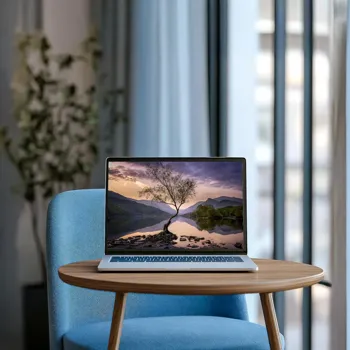Discover how to achieve work-life balance in a hectic world. 7 practical tips to lead a fulfilling life amidst chaos
In today's fast-paced India, striking a balance between professional commitments and
personal well-being can feel like a never-ending tightrope walk.
The pressure to excel at work, coupled with family responsibilities and social expectations, often leaves individuals feeling stressed, overwhelmed, and burnt out. However, achieving a harmonious work-life balance is not an impossible dream.
It requires conscious effort, mindful planning, and a commitment to prioritizing your overall well-being. Let's explore seven practical tips that can help you navigate the complexities of modern life and create a fulfilling balance between your professional and personal spheres.
These tips are designed to be easily integrated into your daily routine, allowing you to lead a more balanced and fulfilling life.
Prioritize and Plan Your Day
The key to effective time management lies in prioritizing your tasks and planning your day in advance. Before diving into your work, take a few minutes to identify the most important tasks that need to be accomplished.
Use a planner, to-do list, or digital calendar to structure your day, allocating specific time slots for both work and personal activities.
This not only helps you stay organized but also ensures that you dedicate sufficient time to your personal life, whether it's spending quality time with family, pursuing hobbies, or simply relaxing and recharging.
Start by listing all the tasks you need to do, then categorize them based on urgency and importance. Focus on tackling high-priority tasks first, and delegate or eliminate tasks that are less critical.
This approach will help you avoid feeling overwhelmed and ensure that you're making the most of your time, both at work and at home. Remember, effective planning is the cornerstone of a balanced and fulfilling life.
Set Clear Boundaries
One of the biggest challenges in today's work culture is the blurring of lines between professional and personal life. With smartphones and constant connectivity, it's easy to fall into the trap of being "always on," responding to work emails and calls even during your personal time.

To avoid burnout and maintain a healthy balance, it's crucial to set clear boundaries between work and personal life. Define specific work hours and stick to them as much as possible.
Communicate your availability to colleagues and clients, letting them know when you're not available for work-related matters. Avoid checking work emails or taking calls during family time or while pursuing hobbies.
Train yourself to disconnect from work after hours and fully immerse yourself in your personal life. This will not only help you recharge and reduce stress but also allow you to be more present and engaged in your personal relationships.
Remember, setting boundaries is not selfish; it's essential for your well-being and long-term productivity.
Embrace the Power of 'No'
Learning to say "no" is a crucial skill for achieving work-life balance. Many individuals, especially those who are eager to please or fearful of missing out, struggle with saying "no" to additional commitments, both at work and in their personal lives.
Overcommitting yourself can lead to stress, exhaustion, and a feeling of being constantly stretched thin.
Before agreeing to take on a new task or obligation, assess your current workload and consider whether you have the time and energy to commit to it without sacrificing your well-being or other priorities.
Don't be afraid to decline requests that don't align with your goals or that would add unnecessary stress to your life. Saying "no" allows you to protect your time and energy, enabling you to focus on what truly matters and maintain a healthier balance.
Learning to say no will free you up to focus on what truly matters.
Prioritize Self-Care
Self-care is not a luxury; it's a necessity for maintaining both physical and mental well-being. In the hustle and bustle of daily life, it's easy to neglect your own needs and prioritize everything else.

However, neglecting self-care can lead to burnout, decreased productivity, and a diminished quality of life. Make time for activities that nourish your mind, body, and soul.
This could include exercise, meditation, reading, spending time in nature, pursuing hobbies, or simply taking a relaxing bath. Aim for at least 30 minutes of self-care each day, and schedule it into your calendar just like any other important appointment.
Remember, taking care of yourself is not selfish; it's an investment in your overall well-being and ability to effectively manage your responsibilities. Make sure to incorporate activities like mediation,reading books,taking nature walks.
Delegate and Outsource
You don't have to do everything yourself! One of the best ways to free up your time and energy is to delegate tasks at work and outsource household chores when possible. At work, identify tasks that can be effectively handled by others and delegate them accordingly.
This not only lightens your workload but also empowers your colleagues and fosters a collaborative work environment. At home, consider outsourcing tasks such as cleaning, laundry, or grocery shopping if your budget allows.
These services can save you valuable time and energy, allowing you to focus on more important things, such as spending quality time with family or pursuing personal interests.
Delegation and outsourcing can significantly reduce your stress levels and contribute to a more balanced and fulfilling life. Remember, delegation is not a sign of weakness; it's a sign of effective leadership and time management.
Embrace Technology Wisely
Technology can be a double-edged sword when it comes to work-life balance. While it can enhance productivity and connectivity, it can also blur the lines between work and personal life, leading to constant distractions and interruptions.

To use technology wisely, be mindful of its impact on your well-being and set boundaries accordingly. Turn off notifications outside of work hours to avoid being constantly bombarded with emails and messages. Use productivity apps to manage your time and tasks effectively.
Schedule dedicated time for checking emails and social media, rather than constantly checking them throughout the day. Embrace technology's ability to automate tasks and streamline your workflow, but be mindful of its potential to encroach on your personal time.
By using technology intentionally and setting boundaries, you can harness its benefits without sacrificing your work-life balance.
Cultivate Meaningful Relationships
Strong social connections are essential for overall well-being and a fulfilling life. Make time for nurturing your relationships with family, friends, and loved ones. Schedule regular get-togethers, phone calls, or video chats to stay connected and maintain meaningful relationships.
Engage in activities that you enjoy together, such as cooking, hiking, or playing games. Be present and attentive when you're with your loved ones, putting distractions aside and focusing on building deeper connections.
Remember, relationships require effort and investment, but the rewards are immeasurable. Strong social connections provide emotional support, reduce stress, and enhance your overall quality of life.
Don't let work and other commitments crowd out your relationships; prioritize them and make them a vital part of your balanced and fulfilling life. Make sure to involve yourself with your family and friends.






















